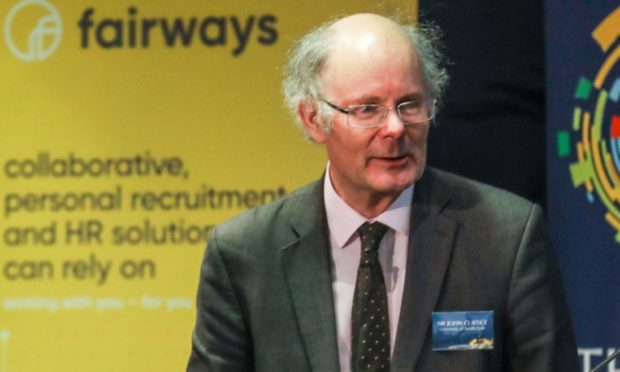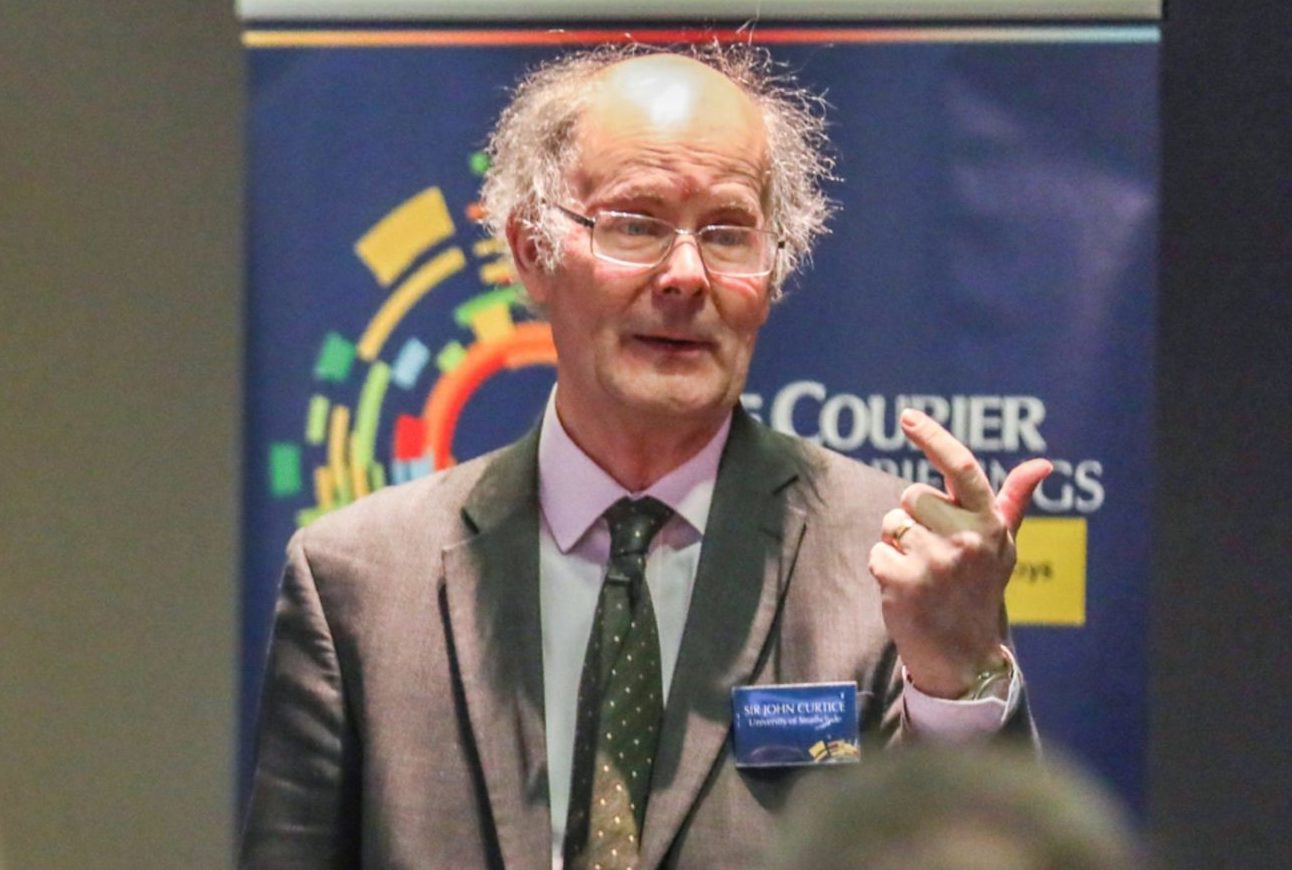The UK Government should “sit up and take notice” of increasing support for Scottish independence in the polls, says one of the UK’s top pollsters.
Sir John Curtice, professor of politics at the University of Strathclyde, said the publication over the last five days of three separate polls showing at least half of voters back independence represents a “noticeable and consistent movement in favour of Yes”.
The most recent survey by Panelbase put support for separation at 52%, with 48% voting to protect the union.
The poll, which was carried out between January 28-31 on behalf of the Scot Goes Pop Blog, follows on from a poll by YouGov last week which put support for independence at 51% and another by Survation showing an even 50/50 split between the two rival camps.
Prof Curtice said the recent polling data looks to be part of a “fairly consistent long-running pattern” over the last year.
He added: “It’s obviously significant in the sense that it’s the first time for three and a half years that we’ve had three polls putting Yes at 50% or above and the last time we had it was in the immediate wake of the EU Referendum.
There is clear, consistent evidence dating back to the spring of last year with nothing dramatic, not a surge, but a noticeable and consistent movement in favour of Yes.
— Professor Sir John Curtice
“Arguably, probably the more important point is that this hasn’t exactly come out of the blue. It’s part of what now looks like a fairly consistent long-running pattern.
“If you look at the polls in 2017-18 you were still getting on average Yes on 45% and No 55%.
“In the polls last year consistently, there was only one election poll which didn’t show it, but all the rest did, showed on average Yes 48.5% and No 51.%.
“There is clear, consistent evidence dating back to the spring of last year with nothing dramatic, not a surge, but a noticeable and consistent movement in favour of Yes.”
Brexit “putting union at risk”
The increase in support for Yes in the most recent Panelbase poll was down to remain voters saying they would vote Yes and is the “first clear sign” independence supporters are beginning to profit from anti-Brexit feeling, Prof Curtice added.
He said: “It’s certainly not enough for anyone to be able say with any confidence that the Yes side would win a referendum but equally it says there is no guarantee the No side will win either.
“We may, if we start to get polls which on average say Yes 51%, for the first time be living in an era in which it looks as though perhaps we just have a majority in favour of Yes, according to the opinion polls.
“There’s no guarantee. It may be that the immediate reaction to what happens to Brexit in the way there was an immediate reaction to the EU referendum and it may go down again.
“But given it’s a long-running trend there it’s reason for the UK Government to sit up and take notice.
“It’s very difficult now for anybody to deny that the pursuit of Brexit is not at least putting the union at some degree of risk.
“That I think is very difficult for anybody to deny however much they would not like it to be true.”
Longer term trends
However, Prof Curtice said it would take six months of polling showing majority support for independence to point at longer-term trends.
He added: “I’d like to see six months of this before we could really say this is the best long-running series of polling for Yes. It may or may not be.
“Three polls is enough to say there’s been a short-term movement but you need six months.
“The point about last year was it was month after month, poll after poll, at which point you have to say things have shifted.
“It doesn’t need a surge before we start to get to a point where the polls on average might just have Yes ahead.”
Mark Diffley: The Brexit factor
Independent polling expert Mark Diffley said there is now a “quite significant body of evidence” to suggest movement on the issue over the last six to nine months, with recent polling showing support inching over 50%.
In terms of what is causing this shift, Mr Diffley argues its Brexit is the one “over-riding factor” at play.
He said: “There’s a bunch of people changing their minds on the back of the impacts of Brexit now happening, so that’s the first thing.
“The second thing is there are people who are coming on to the electoral register in the five years since the independence referendum who were too young to vote in 2014 and are also overwhelmingly supporting independence.
“That’s an important factor albeit not as significant as people changing their minds because of Brexit.”
In terms of whether the recent polling represents a “blip” or a longer-term trend is one that is “more difficult to answer”, Mr Diffley argues.
He said: “Certainly what the unionist side will be hoping is that Brexit can be negotiated smoothly, a trade agreement with the rest of the EU agreed and the world doesn’t stop spinning, they would hope that some of that support has drifted away to the independence side of the argument will come back.
“I think everyone will be watching the polls really closely over the coming few months because clearly the more support for independence rises the more pressure there will be for both sides of this argument.
“From the side of the UK government to think about how it’s handling the situation and from the Scottish Government on what its options might be to bring a referendum about more quickly.”
Poll reaction
Keith Brown, SNP depute leader, hailed the results of the latest poll, saying it shows momentum for a fresh referendum is “now unstoppable”.
However, the Conservative Party dismissed the latest polling, maintaining the public remain against breaking up the union.
A spokesman for the party said: “There was already a poll on breaking up the Union and it was in 2014.
“The majority of Scots said no to separation – and we meant it.”
Meanwhile, Pamela Nash, chief executive of Scotland in Union, said the poll serves as a reminder to those that believe in the union that they must “continue to make the positive case for remaining in the UK every day”.
She added: “We know the overwhelming majority of people in Scotland don’t want a divisive second independence referendum this year but Nicola Sturgeon is ramping up her campaign in a desperate bid to deflect from the SNP’s failings in office.”


